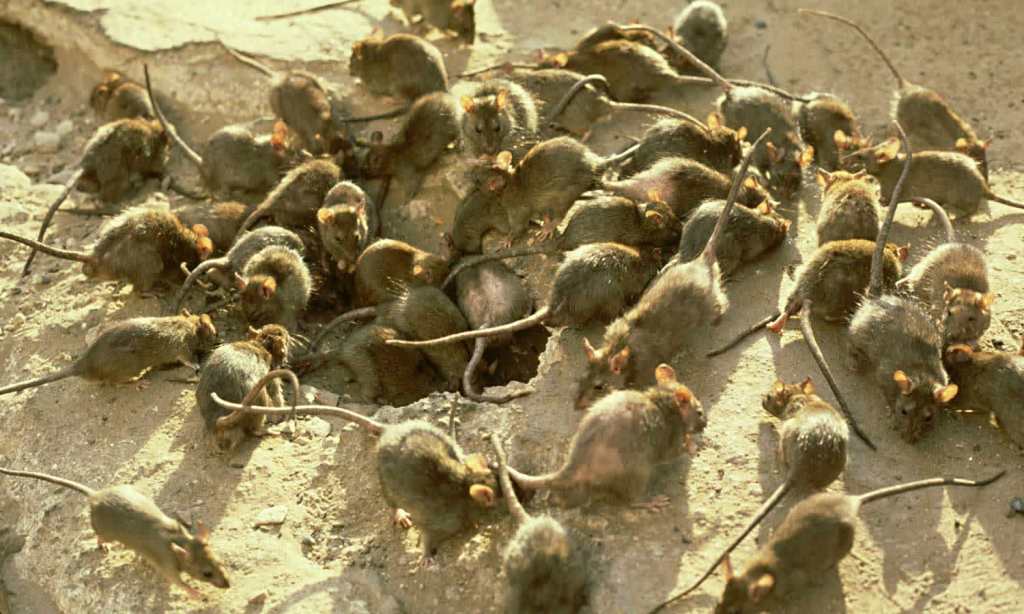If you’re a person who possesses a phone, then it’s likely your group chat has been lighting up with videos of — how can we phrase this — a plague of mice so terrifying, that they wouldn’t be amiss in the book of Exodus, as one of the ten plagues of Egypt.
Except, this isn’t The Bible, this is NSW — and now, according to recent news reports, Queensland, Victoria, and South Australia too.
And as horrifying as the videos might be to watch, it’s even worse to live through. The toll that these mice are having is astronomical — environmentally, economically, and mentally. Apparently, the rodents managed to cut off phone reception in one town.
In fact, one mental health professional likens the impact of this plague to those who live through natural disasters. It’s that bad.
An associate professor from the School of Psychology at Charles Sturt University, Dr Gene Hodgins, explains just how widespread the issue is — farmers have lost entire grain harvests, hotels have had to close, and grocery store stock is being eaten. Mice are going for the non-perishables too, with reports they’ve chewed their way into plastic soft drink bottles.
Dr Hodgins spoke to The Latch to give us a rundown on the havoc these (millions of) mice are causing, what impact they have, and what can be done.
What is the mouse plague and why is it happening?
If you have a phobia of mice — and after seeing the video below, you probably will — you might be reassured that these mouse plagues don’t have super regularly. The last major plague occurred in 2010-2011 — but it’s predicted these are bigger.
As for why? “After years of drought, rural NSW and parts of Queensland enjoyed a bumper crop due to the recent wet season — with this influx of new produce and grains leading to an explosion in the mouse population,” explains Dr Hodgins.
And when conditions are right, which they are currently, this allows for the explosive growth of the mice population, and high survival rates of young mice.
@zacbrennan780
What impact are they having in rural areas?
The real question is, what aren’t these mice impacting? Along with the aforementioned issues, it turns out mice will eat live animals when starving — cool and normal — they’ll burrow underground in paddocks to eat seed during sowing, and they’re getting into the roof and cavities of buildings, cars, and machinery. Dr Hodgins also explains that the corpses of dead mice are clogging up heaters and fridges, too.
Store workers are clearing out up to 600 a night from their stores, people are cleaning up the waste of thousands upon thousands of mice — which takes hours — the smell is inescapable. And they’re even biting hospital patients in regional New South Wales.
And these furry little fiends can impact human health too — these plagues can bring leptospirosis, salmonella bacteria, and acute gastroenteritis.
What are the mental impacts of a plague like this?
One of the biggest mental health impacts during a mouse plague is, understandably, stress. But not your average stress — Dr Hodgins says it’s chronic stress.
“Problems sleeping, problems relaxing, financial issues because of the impact of the plague on businesses or on farming practices, and lowered mood.”
He also says it’s been relentless, as for some of the communities suffering from the mouse plague this is their “second, third, or fourth major incident or event (after drought, fires, floods, COVID)” — and the mouse plague might be the thing that tips them over.
How can people take care of their mental health during a time like this?
“It’s OK and legitimate to be affected,” says Dr Hodgins, “It’s OK to struggle.” In fact, he says one of the most important things people can do is to acknowledge that they’re struggling — and talk about it.
“Social support is a very important buffering mechanism when it comes to dealing with stressful events — social connection helps people, provides a break, and helps us to cope.”
Strategies he recommends include for people to try and focus on things they can control (“relationship, work, washing, cooking”), and being aware of small-talk, “what we’re saying about the mice in our head.” Exercising, eating well, trying your best to sleep well, are simple but important things he suggests people do.
If you are really struggling, he recommends talking to your GP, mental health practitioner, or call a service like Lifeline.
How can those who are not in the area help?
If you’ve seen the viral video, and want to do more than erase the memory from your brain and throw your phone at the wall, Dr Hodgins has a few thoughts.
These include advocating and supporting an increase in mental health services in regional and rural areas, and advocating for the government to provide financial support for bait.
If you or anyone you know is struggling and needs support, call Kids Helpline on 1800 55 1800 or Lifeline on 13 11 14, both of which provide trained counsellors you can talk with 24/7. You can also speak with someone confidentially at Headspace by calling 1800 650 890 or chat online here. If you are in immediate danger, call 000.
Read more stories from The Latch and subscribe to our email newsletter.







